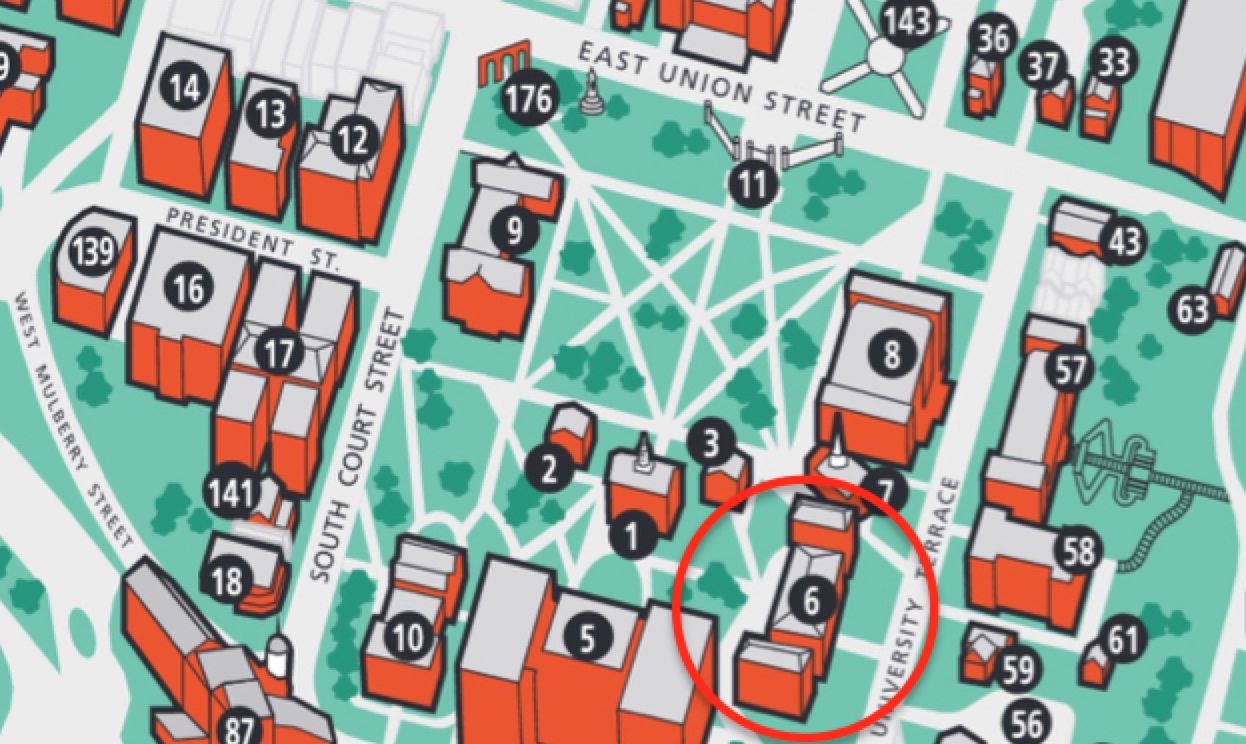|
ENG 3390
Dr. Edmond Chang Download the course policies and syllabus (PDF).
"I was attracted to science fiction because it was so wide open. I was able to do anything and there
were no walls to hem you in and there was no human condition that you were stopped from examining."
"First sentences are doors to worlds."
|
WHAT DOES IT mean to "study authors, works, genres, and topics in African American literature from 1930 to the present," particularly considering time and place, history, identities, and literary canons? And even more difficult, how might we consider the fields, formations, and possibilities of "African American Literature" through science fiction or speculative fiction? Sheree Thomas, editor of the 2000 collection Dark Matter: A Century of Speculative Fiction from the African Diaspora, said, "The science fiction and fantasy genres have always offered readers, bold, extraordinary ways by which to examine society. The results have often been visionary, with writers acting as unflinching voyeurs who deliver engaging, sometimes scathing critiques of our traditions, values, nightmares, and dreams." This class, then, will explore the intersections of literature, genre, media, race, gender, sexuality, class, and technology. Texts may include W.E.B Du Bois, Pauline Hopkins, George Schuyler, Ralph Ellison, Samuel Delany, Octavia Butler, Toni Morrison, Derrick Bell, Jewelle Gomez, Nalo Hopkinson, Nisi Shawl, and Nnedi Okorafor. A REQUIREMENT for this class is a well-developed curiosity and a willingness to explore and interrogate interdisciplinary lines of inquiry. Our class will be organized around a survey of texts engaging scholarship, media, and popular culture. This class will take up everyday culture as critical practice, explore what it means to close read and think critically, and how literature and popular culture can be deployed as theory, as dramatizing the concerns, wonders, struggles, and politics of lived life and experience. This class will spend the semester reading, thinking, watching, discussing, researching, playing, and writing about various narratives and how and what these texts argue, reveal, narrate, hide, perpetuate, and complicate the world we live in. SPECIFICALLY, our course goals include:
• We will develop and demonstrate a familiarity with a range of texts, terms, and
theories of the study of African American literature vis a vis speculative and science
fiction. We will engage different authors and texts to complicate notions of canon, genre,
form, time, and place.
WE WILL spend the quarter asking and addressing difficult,
challenging, and sometimes discomforting ideas, questions, and topics, focusing on different
identities, bodies, histories, desires, experiences, and even struggles and violences. Whether
on the page, screen, on campus, or in the community, we will explore and engage multiple perspectives,
levels of familiarity with the material, and heady and heartfelt responses. In other words, our
class will be a safe, respectful, but not necessarily comfortable space. While pushing boundaries
and comfort zones are essential to critical thinking, making connections, and intellectual and
personal freedom, see me with concerns and queries, for reasonable accommodations, and for further
resources on campus.
|
"If one is lucky, a solitary fantasy can totally transform one million realities."
Required Course Texts & Materials
• Hopkins, Of One Blood.
|
|
Course Requirements
Presentation (10%) Download the course policies and syllabus (PDF).
|
Requirements & GradingYour grade should not be the sole exigence or motivation for this class. It is the hope of the course that you walk away from our class with something more. Find some pleasure and some edification and some knowledge from this class (or any class really) and success is usually not far behind. With that in mind, your grade will be a reflection of engagement, effort, close reading, critical thinking, writing, and participation. Critical Essay & Question Presentation (10%) You will be a required to sign up for an oral presentation (in small groups) during the course of the quarter. For your presentation, you will read the texts assigned for a particular week, research a scholarly essay relevant to the texts and course, distribute the essay to the class the week prior, generate a critical question or two, and get the class discussion started for the day. Creative Responses (10%) Not only will you be reading speculative and science fictions, you will write your own to explore and demonstrate the ideas and goals of the course. Over the course of the semester, you will complete a drawing, write a short-short story, and write a critical review. These creative responses will be evaluated on completion and your critical, thoughtful engagement with the prompts. Critical Response Papers (20%) Over the course of the semester, you will complete a number short, critical, analytical response papers. These single-spaced, one-page writings serve as close readings of, analyses of, and articulations of the texts and connections you see, read, and talk about in class. These responses are more than just summaries or personal reactions and will be graded on clarity, focus, coherence, critique, and your ability to concisely formulate arguments. You will be required to generate a response paper approximately every other week for a minimum of 5. See the response paper prompt for more details. Project Proposal Memo (10%) As part of your Final Project research and writing process, you must generate a 1-page research proposal in business memo format. You will also arrange for a conference with me to go over your proposal. Proposals will be graded for clarity, detail, completion, and manuscript format. Your proposal and conference must be completed at least 4 weeks prior to the end of the semester. Final Paper/Project (20%) At the end of the semester, you will complete a Final Project that integrates what you have read, explored, and written about in your Response Papers, that draws on specific terms, concepts, or issues from the class, and that articulates the critical value of African American science fiction. The project asks you to make connections and to create an argument across different kinds of evidence and added research. Your final project can be a traditional research paper, a media production (which includes a substantive analytical component), or a hybrid of the two. Participation and Preparedness (30%) Preparedness and participation forms a large component of your final grade. It is essential that you prepare for class and regularly participate online. Moreover, negative participation will hurt your participation grade. Participation is determined by 1) your respectful presence in the class forums and interactions with me and others, 2) your willingness to discuss, comment, and ask questions, 3) your preparation for class, which includes having the required materials on hand and doing all of the assigned reading and watching for class, 4) your engagement in collaboration, group work, peer review, and presentations, and 5) your care and daily use of the class Blackboard--henceforth called the "class blog"--bookmark the address, check and comment regularly, think of the blog as an extension of: https://blackboard.ohio.edu/webapps/blackboard/execute/courseMain?course_id=_518752_1 |
"I am invisible, understand, simply because people refuse to see me." --Ralph Ellison
"With our short sight we affect to take a comprehensive view of eternity. Our horizon is the universe."
"And once upon a time I wondered: Is writing epic fantasy not somehow a betrayal? Did I not somehow
do a disservice to my own reality by paying so much attention to the power fantasies of disenchanted
white men? But. Epic fantasy is not merely what Tolkien made it."
|
|
|
Attendance
Attendance is required. If you are absent, you miss the explanation of an assignment, the discussion
of a reading, the chance to participate, and overall, the class as a community of learning. Also,
you are expected to be in class on time. Class will start immediately at the appointed time. In the
first minutes of class I may make important announcements, establish the agenda for the day, begin
immediately with an important lesson, or field questions. If you come in after we start class, even
by only a few minutes, you are late and will be mark as such. Chronic or conspicuous attendance
problems will negatively affect your overall participation grade for the class. Moreover, absences
for more than 14 class sessions (50% of class time or more) will result in a failing grade regardless
of reason. There are no excused or unexcused absences. If you know you are going to or must miss
class, please let me know (via email) as soon as possible and make any necessary arrangements. When
you do miss class, always find another student to get class notes or see me during office hours in
order to make up missed work in a timely manner. You are always responsible for all material
covered during your absence.
|
|
|
Response Paper Formatting 1) 1" margins top, bottom, left, and right on each page. 2) Single-spaced block header on the first page only with your name, date, course, my name:
Student Name 3) Response (week) number and title (e.g. Week #1: Race and The Great Gatsby). 4) Response papers are single-spaced, standard indented paragraphing, no page numbers. 5) Standard Times Roman Font, 12 point only. 6) Correct MLA citation and bibliographic format. Bibliography if necessary.
|
Assignment FormatAll papers must be typed or produced on a word processor. All documents should be saved in Microsoft Word format (or if necessary Rich Text Format). All papers must follow the manuscript format outlined by the assignment. Unless instructed otherwise, all papers must use MLA citation and documentation conventions. All papers must be neatly printed (in black), single-sided, stapled in the top, left-hand corner if necessary, and not be three-hole punched. Papers that do not follow these format guidelines will not be accepted. They will be returned unread to you. Papers will be regarded as late until they are resubmitted in the proper format. Always make a backup copy of every paper you turn in, lest you be one of the unhappy people whose paper is eaten by the computer. You may even want to take the precaution of e-mailing your paper to yourself as an attachment during the drafting process and certainly before you exit the document and leave the computer. Or you may want to invest in cloud-based file storage like OneDrive (which all OU students have already have access) or DropBox.
Evaluation RubricOver the course of the semester, your assignments will receive feedback and comments that will identify what you are doing well and what still needs improvement. Your grades assess your fulfillment of the assignment, the quality of work, detail, analysis, and argumentation, overall effort, and finally, style, polish, and risk taking. Consider the following evaluation rubric as signposts or a kind of legend to your progress and evaluation:
• Outstanding (A/A+): Offers a very highly proficient, even memorable demonstration
of the trait(s) associated with the course or assignment goal(s), including some
appropriate risk-taking and/or creativity. |
Late Assignments All assignments must be done completely and turned in on time. Late assignments will be penalized a letter grade for every day that they are late. So, if your essay is late by one day and you received a B- for your work, then your final grade would be a C-. Moreover, I will not comment on late work. However, you still need to complete late work or you will receive a zero. If you miss the due date of a paper, you must notify me and make arrangements to get the paper to me as soon as possible. Unless previously arranged, I DO NOT accept assignments via email. Remember that a paper has not been officially handed in until it is in my hands. Never turning anything in late is always the best policy. |
|
Contact Ed
Office: Download the course policies and syllabus.
|
Online Instruction and Finding HelpMy office and office hours are listed in the left sidebar. I am available during that time and by appointment to help you. I encourage you to come see me early in the term even if it is just to talk about the class, about the assignments, or about school in general. I may ask you to meet with me when I think a conference would be useful. My office is located on the third floor of Ellis Hall (east of Alden Library), Room 331.

I am also available electronically by email and the course blog. Email and the blog are the best means of contacting me. I will do my best to answer your emails and blog posts, usually within twenty-four hours. If there is an emergency and you need to reach me, please contact the main English office in N196 Lindley Hall. Furthermore, when time permits, I will supplement my office hours with virtual hours via Google Talk (nickname: EDagogy); if I am logged in, during reasonable hours, you are more than welcome to discuss the class or ask questions. Please, when you initiate an IM conversation for the first time, please identify yourself to me; also, be patient because my responses may not be immediate. You can find additional writing and academic help at the Student Writing Center (SWC) on campus, a good resource for this class and other classes. The SWC is located in the Academic Advancement Center (AAC) on the first floor of Alden Library and offers a variety of services including help with reading, papers, brainstorming ideas, and research. See https://www.ohio.edu/uc/aac/ to make an appointment and for more information.
Further resources, both on- and off-campus can be found on the Links page of the course website:
http://www.edmondchang.com/courses/3390/links.html.
|
Learning (With) TechnologyUnless you have an official accommodation, the use of technology in our classroom is a privilege, not a right. Mobile devices like phones, media players, and cameras should be off and put away. Computers and tablets should be used for note-taking, in-class work, and readings only. Print is generally preferred for course texts and readings, but full-size e-versions are acceptable provided the student is able to readily highlight, annotate, and index. Finally, be conscientious and respectful in the use of the course website and social media and post no material from class to the internet or non-class sites without explicit permission from the instructor and the class. Keep in mind these three rules: 1) Use the Right Tool for the situation and the task--keep it simple and elegant, 2) Practice Best Practices--it must improve or enhance your learning, 3) Be a Good Neighbor--it cannot distract or detract from others' learning. Inappropriate use and abuse of technology in class will result in the taking away of technology privileges for the offending student and/or class as a whole. |
|
|
Academic DishonestyAll students are required to uphold the highest academic standards. Plagiarism, or academic dishonesty, is presenting someone else's ideas or writing as your own. In your writing for this class, you are encouraged to refer to other people's thoughts and writing--as long as you cite them. Many students do not have a clear understanding of what constitutes plagiarism, so feel free to ask questions at any time. For our class, plagiarism includes:
• a student failing to cite sources of ideas If you have any doubt about how to cite or acknowledge another's writing, please talk to me. Any plagiarism or academic dishonesty will result in failure of an assignment or of this course. It is always better to be safe than sorry. Please review the Ohio University's Academic Misconduct page at https://www.ohio.edu/student-affairs/community-standards
AccommodationsAny student who feels they may need an accommodation based on the impact of a disability should see me or contact me in the first week of class to discuss their specific needs and provide written documentation from Student Accessibility Services. If you are not yet registered as a student with a disability, please contact Student Accessibility Services at 740-593-2620 or visit the SAS office in 348 Baker University Center. The SAS website is: https://www.ohio.edu/uc/sas
Harassment, Discrimination, and Sexual Misconduct
Ohio University and this course are committed to a safe, supportive, and inclusive learning environment.
Title IX makes clear that violence and harassment based on sex and gender is a Civil Rights offense
subject to the same kinds of accountability and support applied to offenses against other protected
categories such as race, national origin, and so on. As your instructor, I am a mandatory reporter
and am required by law to share with the University any information regarding sexual misconduct or
information about a crime that may have occurred on campus. For more information about policies
and resources or confidential reporting options, see the Office of University Equity and Civil
Rights Compliance:
https://www.ohio.edu/equity-civil-rights/
or the Office of Community Standards and Student Responsibility:
https://www.ohio.edu/student-affairs/community-standards
|
"The way to right wrongs is to turn the light of truth upon them."
"When I read great literature, great drama, speeches, or sermons, I feel that the human mind has
not achieved anything greater than the ability to share feelings and thoughts through language."
"But there are certain very practical things American Negro writers can do. And must do. There's a
song that says, the time ain't long. That song is right. Something has got to change in America--and
change soon. We must help that change to come."
|
|
|
© 2019 Edmond Chang. All original material. All rights reserved. Contact the webmaster of this site. These pages are best viewed with Mozilla Firefox or Google Chrome. Open your browser to the largest viewable area. These pages are hosted by ED(MOND)CHANG(ED)AGOGY, the academic, professional, and creative website of Edmond Y. Chang. |
|

















